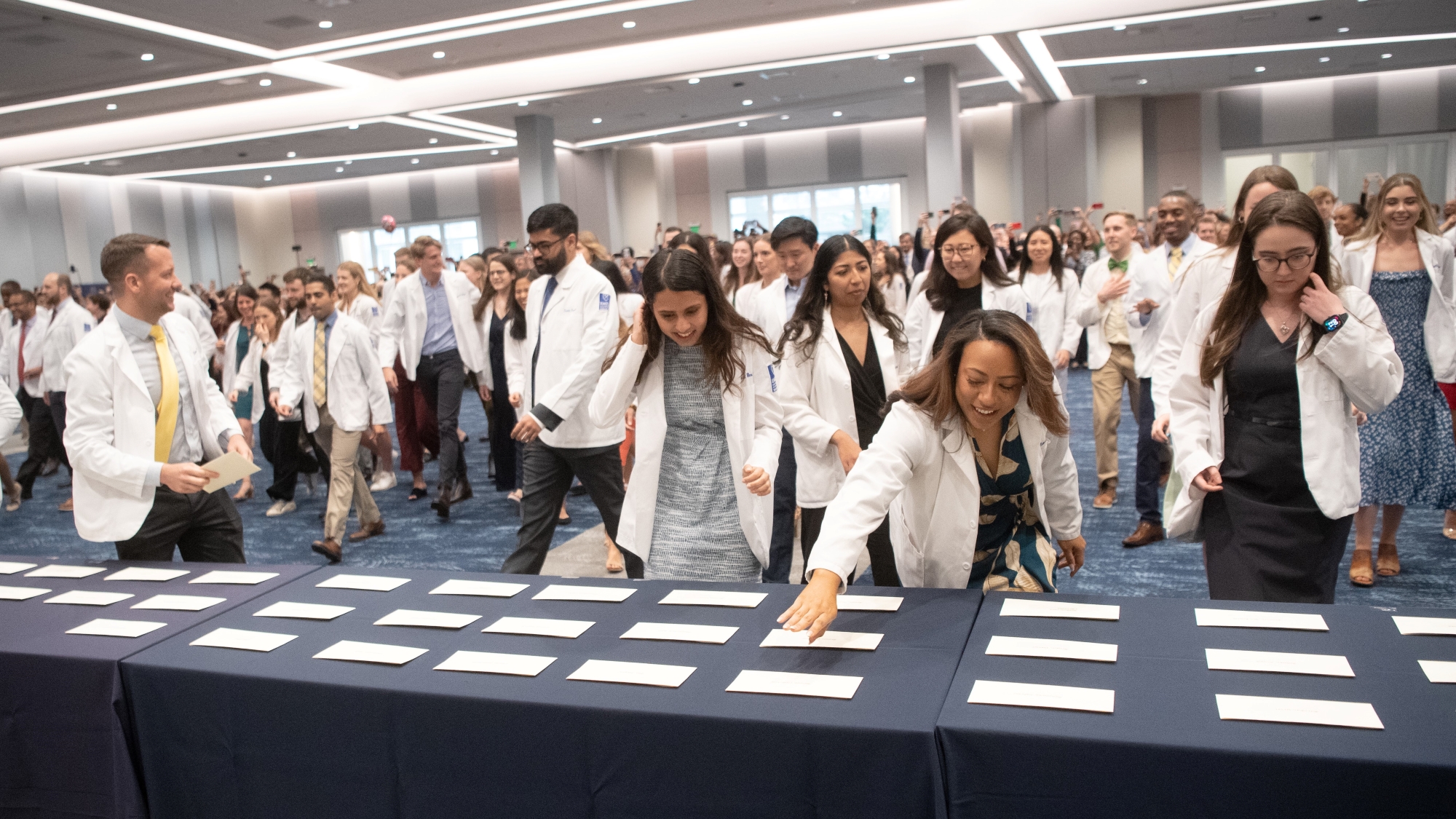Choosing a career path is one of the most significant decisions a medical student will make. Career planning is part of every academic year’s Orientations, and specific Career counseling sessions occur throughout the curriculum. Small Group Advisors are trained to provide guidance on this important issue and are able to advise medical students where to seek specialty-specific information and counselors.
Career Counseling
- Small Group Advisors offering career guidance and facilitating networking within and outside Emory
- Scheduled career advice and planning sessions throughout the curriculum
- One-on-one meetings with the Associate Dean for Student Affairs, Clinical Services for career counseling
- Department-designated medical student advisors chosen to counsel students regarding their specialty (on EmoryDOCS website)
- Choosing advisors, both informally for career advice, and formally to help students plan and schedule their Translation Phase of medical school
- Easily accessible deans, faculty, recent Emory graduates, and staff to contact for career advising
Activities
- Planned curricular activities to aid in making a career choice
- Exposure to a wide variety of specialties and careers through the Foundations, Application and Translation Phases (required clerkships and electives)
- Research opportunities through the Discovery Phase
Class meetings during the Translation Phase to discuss:
- Advice and counseling for students who are still undecided after completing the Application Phase
- Writing Personal Statements
- Early preparation for residency applications
- Timeline for applying to residency programs
- Information about early match programs
- The residency application and matching process
- Exploring residency options - panel discussions with residency program directors
- Where to access detailed information about specific residency programs
- Applying for highly competitive programs
- How to prepare for and interview effectively
- Mock residency interviews
Last modified: 07/17/2024.



